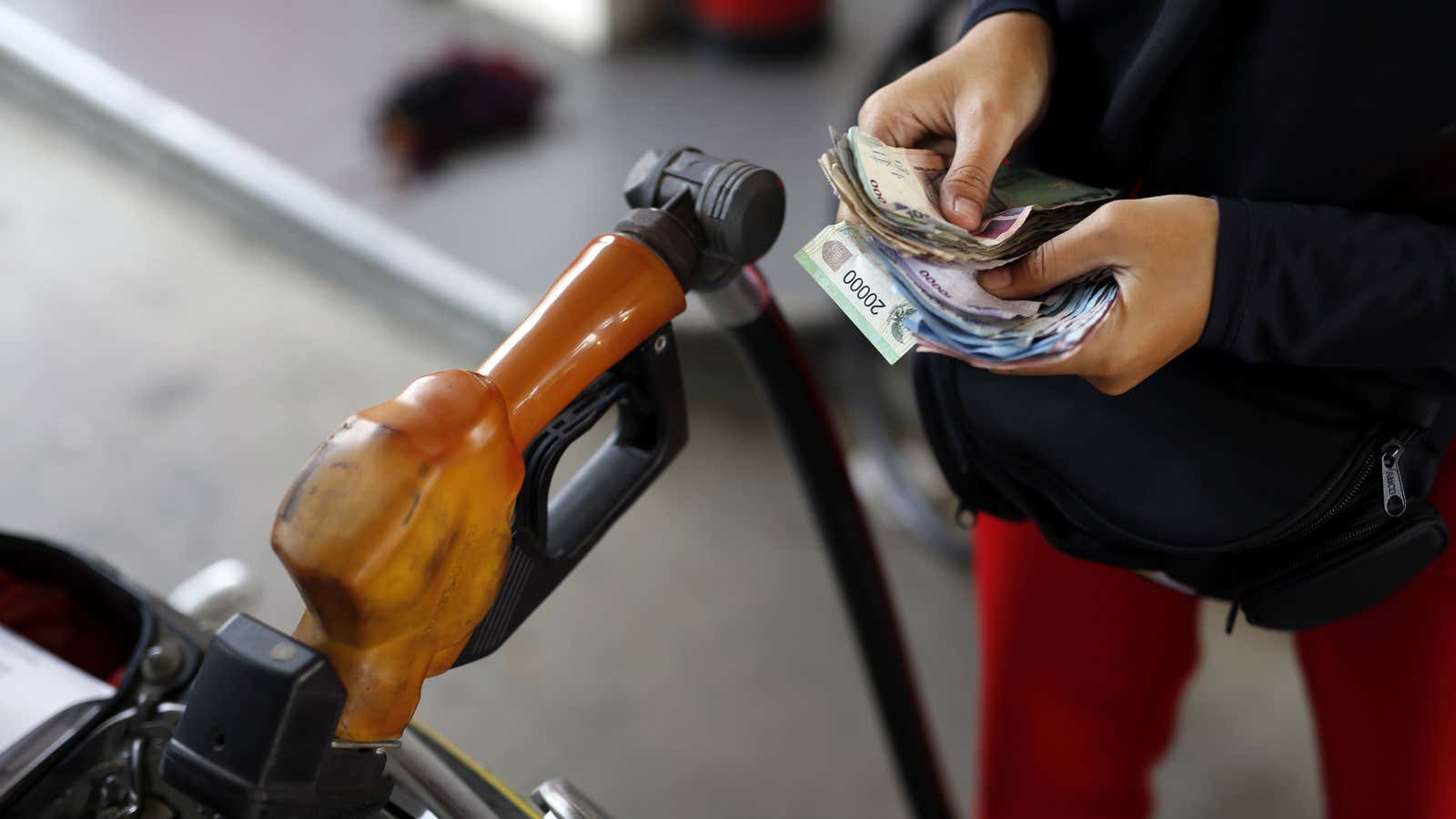Lots of good things happen when oil prices are low. Sure, the global economy gets thrown off-balance and oil companies suddenly stop becoming giant profit engines, but at least it gets cheaper to fill up the tank.
In more than a few countries, though, consumers regularly enjoyed low gasoline prices even before the oil market crashed, thanks to government subsidies. Trouble is, these subsidies typically are paid for with revenue brought in by the oil sector, either through taxes or state-ownership outright.
Now that fuel has gotten so cheap, the oil revenue available to petro-states like Saudia Arabia and Venezuela is scarcer, meaning the subsidies themselves are getting a lot less affordable. Against swelling deficits and shrinking foreign-exchange piles, a number of countries with generous subsidies have now made them less so, and in some cases have removed them altogether.
The United Arab Emirates stopped subsidizing transport fuel in August. Nigeria decided to do the same. Saudi Arabia took action in January, calculating that a cut in subsidies would be worth the inflation risk. And Venezuela, where consumers already are struggling with a deep recession and rampant inflation, raised fuel prices in February, its first such increase in 20 years.
Subsidy cuts have a history of triggering protests among those affected. But in a few corners, the trend is a welcome one.
Environmentalists have long complained that suppressing fuel prices encourages more consumption than would be the case otherwise, driving up emissions and accelerating climate change.
Meanwhile, many economists dislike fuel subsidies because they consider them a waste of money—one that makes it harder to accurately determine true market prices. The International Monetary Fund argued both of these points in a 2015 report estimating that $1.4 trillion a year, or 1.7% of global GDP, is spent on suppressing petroleum costs.
Other critics cite the cost that fuel subsidies can have on neighboring countries where no such subsidies exist. For example, in West Africa, subsidized gas from Nigeria has been known to find its way into Ghana, Mali, Burkina Faso, and Benin, where the smuggled-in fuel can be sold at a markup.
“Fuel subsidies are an incredibly inefficient way of helping the poor, since most of the benefits end up being captured by the richest in society,” says John Ashborne, an economist with research firm Capital Economics.
Ian Parry, one of the authors of the IMF report, suggests to Quartz now is the perfect time for countries to cut subsidies. With the natural price of fuel already so low, there’s a certain amount of economic cover for the withdrawal of government support. Says Parry, ”If countries aren’t going to do something now, when are they going to do it?”
